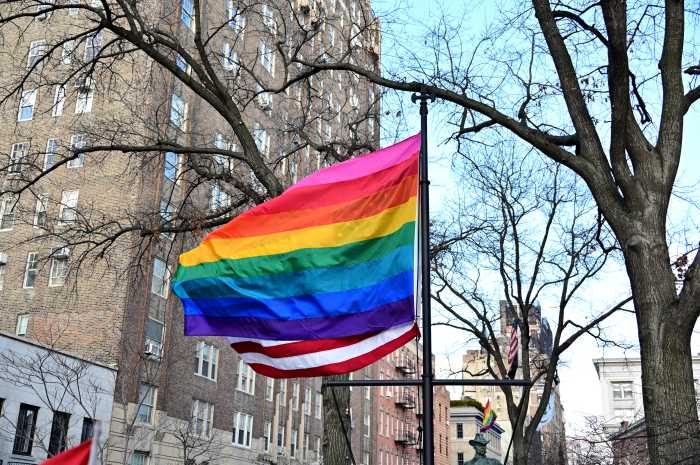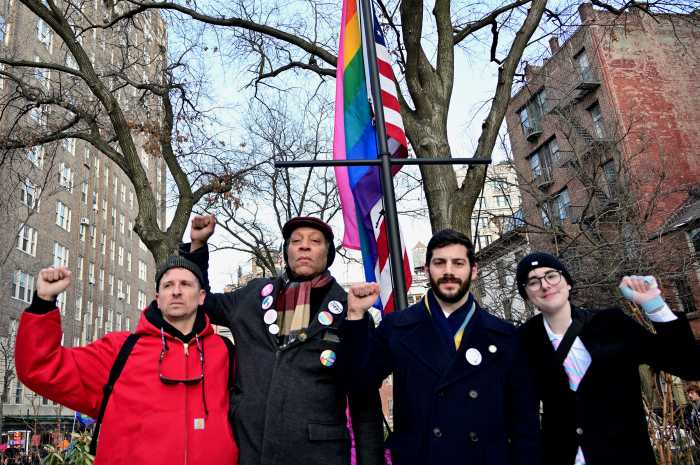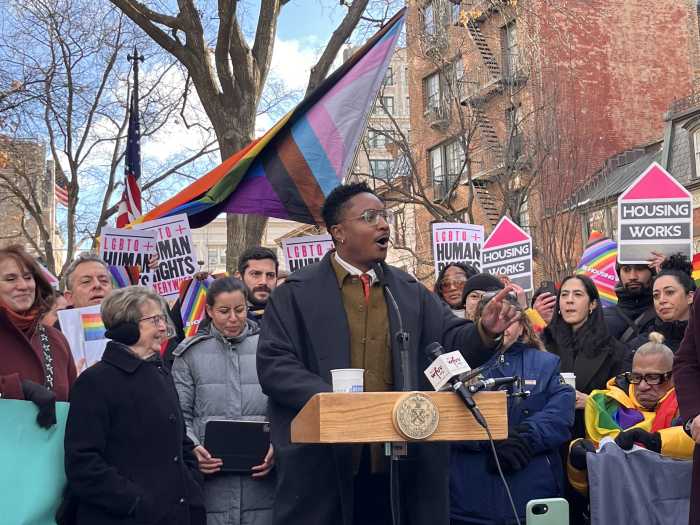Subject: Transgendered marriage?
With all the discussion of same-sex marriage I wondered what happens if someone has sexual reassignment surgery. Can he or she be married if they become the other gender, even if they’re marrying someone of the gender they used to be? This really raises a lot of questions.
Re: Transgendered marriage?
It sure does––and it points to how ridiculous it is to have laws of any kind that clearly demarcate gender as well as laws that ban or grant marriage based upon those demarcations.
Think about it the other way around too: There are many people who were married to someone of the opposite gender and then had gender reassignment surgery and are now, technically, in same-sex marriages, even though those are supposedly not legal.
The realities point to how the issue of marriage affects transgendered people in addition to gays and lesbians, and also underscore that the “states’ rights” argument––that Democrats cling to as a way of dodging a national position on the question of same-sex marriage––is very limited. Civil rights, after all, should be protected by the federal government. And yet, different states have different laws on marriage––and domestic partnership and civil unions––as well as different laws regarding what defines a “man” and a “woman,” and thus what defines a same-gender or opposite-gender marriage.
Recently, a transsexual woman was arrested in Kansas for applying for a marriage license, since the State of Kansas only recognizes the gender that was put on your birth certificate, no matter what you might do later. Sandy Clarissa Gast was actually charged with providing false information on an official document, even though she’d had gender reassignment surgery, had legally changed her name, and had a driver’s license that declares her a female. As far as the state is concerned, that doesn’t matter: She’s a man and was falsifying documents by applying for a marriage license as a woman.
“The change of driver’s license, the change of name––even though they were done through legal channels––doesn’t change gender,” Frank Kohl, the Leavenworth County prosecuting attorney, said in a television interview, citing a state Supreme Court ruling. “The gender you’re born with is the gender you remain for life.”
That kind of thinking must be challenged. And if the same-sex marriage movement can have an impact in that regard, it’s all the better.
Subject: Self-destruction?
I’ve been out for about 13 years and have had just about everyone I love in the community: 1) become addicted to drugs; 2) become HIV positive; 3) die.
I know I’m not just having bad luck here––my friends in California tell me how shallow and self-destructive the scene is there. I live in the Midwest where it might be only a little better. I see the people on the news getting married and I wonder where these people managed to meet? The truth is, I don’t trust most of the bois I meet anymore. I don’t trust their HIV status, their honesty, or fidelity. What do you think?
Re: Self-destruction?
Every time I broach this subject––and tell people they need to look elsewhere––I get angry letters accusing me of just not getting it. In these people’s minds, it’s all basically hopeless. Why? People often believe their own experience is the only experience, no matter how many times you point out alternatives. I’m not about to downplay the reality of the gay male “scene,” as I’ve written quite a bit about it in the past and much of what I’ve written is becoming true even more, as segments of the gay male population in New York and other big cities are in the midst of a crystal meth abuse epidemic that is fueling the AIDS epidemic.
But honestly, the “scene” and the “gay community” are not one in the same. Every time I say this, the protests come fast and furiously––and to be frank, they’re so furious that they seem suspicious to me––but I’m going to say it again: You’re limiting yourself in terms of what you access as the “gay community.” You’re not looking at the full spectrum.
We need to first unpack a few things here. When you say you don’t trust people’s HIV status, it’s almost as if you’re saying you don’t have a responsibility in this regard yourself. You should be having protected sex with everyone, so no one’s HIV status should be affecting yours—whether the people with whom you have sex are lying or not about their status.
Secondly, someone being HIV positive shouldn’t be seen as a terrible negative or necessarily an example of the “self-destructive” scene. Many people are HIV-positive and became so in a variety of ways that have nothing to do with the “scene.” Once you get on this slippery slope, you’re pointing fingers at others when you should be thinking about what you need to do for yourself.
I believe you when you say that everyone you’ve loved has become addicted to drugs or is dead or became HIV-positive, but just because that is your experience doesn’t mean that that is what happens with all gay people. Even you acknowledge the gay people getting married whom you see on television. I don’t want to elevate people who get married as somehow more morally upright or stable––something I don’t believe––but mention this only to point out that there is a diverse community out there, one that you are now seeing just a little bit more of on television, ironically, rather than in the bars in your Midwest city.
I think that should tell you that you need to explore other avenues to meet people. As I’ve said before, check out gay community centers, go to gay groups that have your interests––from sports to religion to politics––and begin meeting people of all kinds. If you only expose yourself to the “scene”––whether in the Midwest or in California, where your friends are––then you’re only going to keep playing out this self-fulfilling prophesy.
Email Mike Signorile at Mike@Signorile.com.
Write Us!
Gay City News welcomes letters to the editor
and reserves the right to edit them
due to space constraints.
Please address letters to:
Editor@GayCityNews.com
Or, via mail, to
487 Greenwich St., Suite 6A
New York, NY 10013



































